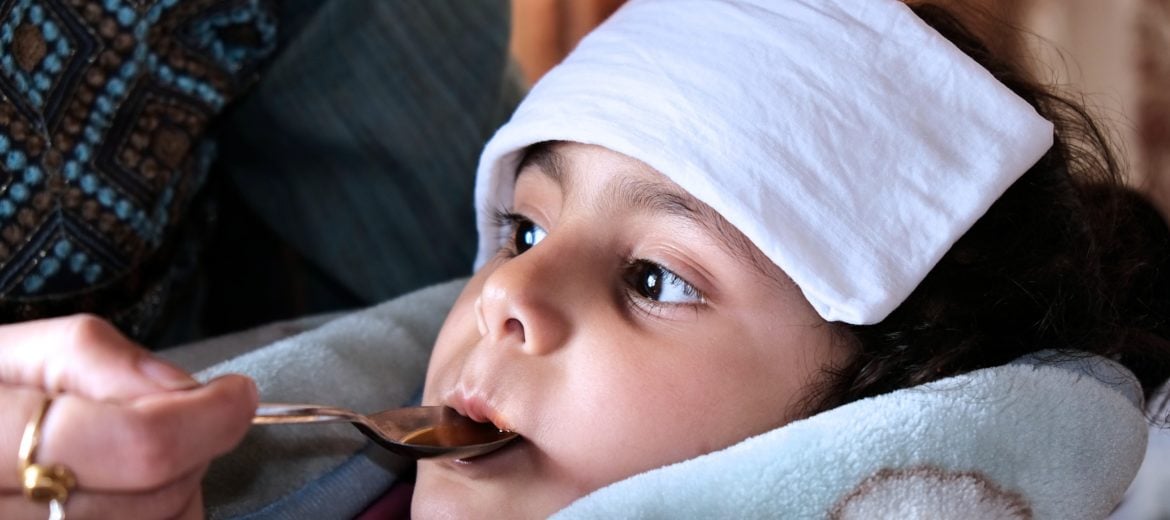Your pediatrician will advise the course of treatment based on the severity of Dengue and the stage of illness. For most children, dengue treatment at home is possible.
“Unlike some infections, there are no medications or cure for dengue. Dengue can only be managed by vigilant care, monitoring and adjusting the supportive care according to severity and symptoms” explains Dr Neha Joshi, Consultant Pediatrics at Sitaram Bhartia Hospital in Delhi.
“You should be well aware of the expected dengue symptoms in children and warning signs of the disease so you can approach your pediatrician if needed.”
In some cases, doctors could advise in-hospital monitoring especially for infants and children with a low oral intake.
Here are 5 points for management of dengue at home after guidance from your pediatrician:
- Hydrate, Hydrate, Hydrate
Hydration is crucial in dengue especially 24 – 48 hours after the fever settles down. This is also known as the critical phase of dengue.
“You can manage the critical phase by increasing your child’s fluid intake. This maintains the blood volume in the vessels” emphasizes Dr Neha.
You can serve your child water, homemade lemonade, fruit juices, coconut water, homemade clear soups, flavoured ORS solutions to appease your child’s taste-buds. Avoid aerated beverages.
“It is unlikely that your child will feel like eating. You should focus on ensuring that your child is well-hydrated rather than forcing him/her to have solids” adds the doctor.
- Create a comfortable environment
Apart from medicines, sponge baths may provide your child relief from fever.
“During a sponge bath, make sure that the room is pleasant enough for your child. Creating a comfortable environment for your child is very important” says Dr Neha.
Encourage simple, non-spicy, comfort food which won’t hurt your child’s stomach.
- Give medicines ONLY as instructed
“Some people believe higher dosages or frequent consumption of medicines will abort dengue quicker. This assumption is incorrect and instead could have adverse effects” stresses Dr Neha.
“Medication should be consumed as instructed by the doctor.”
Avoid ibuprofen-based medicines during critical phase of dengue as it may increase the risk of bleeding.
- Observe how frequently your child is urinating:
If your child is urinating clear urine at least once every 4-6 hours, it proves that your child is well-hydrated. This is a good sign.
Keep a tab on how frequently your child is visiting the washroom and ask them about the colour and quantity of the urine as well.
Dr Neha adds, “If your infant has dengue, keep a tab on how frequently you have to change the nappy”
- Stay away from dengue wonder drugs:
“There are many wonder drugs that claim to ‘cure’ dengue. You should stay away from such drugs as their effect is not scientifically proven” says Dr Neha.
For example, there isn’t enough scientific proof to support the assertion that the juice from Papaya leaves can cure dengue.
Remember, constant monitoring and tests are vital in management of dengue.
Dr Neha highlights another important aspect, “Since Dengue is unpredictable, frequent blood tests and check-ups are important to monitor the recovery of your child”
“It is important that you understand the relevance of these examinations and transfer the same confidence to your child”
“This makes taking the blood sample much easier which makes the process less stressful for everyone.”
Conclusion
Dr Neha concludes, “Management of dengue requires close attention and constant monitoring. You need to be more vigilant and ask your child how they feel time and again.”
If you have any questions on dengue, please call us on +91 8826391002 to schedule a consultation with Dr. Neha Joshi.

